Program
We are proud to present fantastic lecturers and speakers who will introduce participants to various aspects of machine learning applied to quantum physics and chemistry.
Invited lecturers:
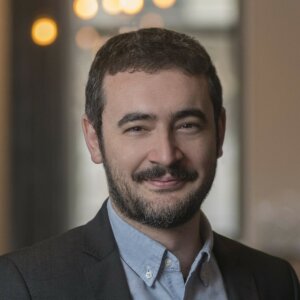
Giuseppe Carleo
École Polytechnique Fédérale de Lausanne, Switzerland
[lecture notes] [lecture recording #1] [lecture recording #2] [notebooks]
Giuseppe Carleo is a computational quantum physicist whose main focus is the development of advanced numerical algorithms to study challenging problems involving strongly interacting quantum systems. He is best known for the introduction of machine learning techniques to study both equilibrium and dynamical properties, based on neural-network representations of quantum states, as well as for the time-dependent variational Monte Carlo method. He earned a Ph.D. in Condensed Matter Theory from the International School for Advanced Studies (SISSA) in Italy in 2011. He held postdoctoral positions at the Institut d’Optique in France and ETH Zurich in Switzerland, where he also served as a lecturer in computational quantum physics. In 2018, he joined the Flatiron Institute in New York City in 2018 at the Center for Computational Quantum Physics (CCQ), working as a Research Scientist and project leader, and also leading the development of the open-source project NetKet. Since September 2020, he is an assistant professor at EPFL in Switzerland, leading a research group focused on computational quantum science. [source]
 Juan Carrasquilla
Juan Carrasquilla
Vector Institute for Artificial Intelligence, Toronto, Canada
Title: Recurrent Neural Networks
[lecture notes] [lecture recording]
Juan’s research interests are at the intersection of condensed matter physics, quantum computing, and machine learning. Juan combines quantum Monte Carlo simulations and machine learning techniques to analyze the collective behavior of quantum many-body systems. Applications of these ideas include identifying phases of matter in numerical simulations and experiments, as well as the validation of near-term quantum devices and quantum simulations of condensed matter systems. He completed his Ph.D. in Physics at SISSA, the International School for Advanced Studies in Italy. He has held positions as a Postdoctoral Fellow at Georgetown University, Visiting Research Scholar at Penn State University, and Postdoctoral Fellow at the Perimeter Institute. Most recently, Juan was a Research Scientist at D-Wave Systems Inc. in Burnaby, British Columbia, and has recently joined the Vector Institute full-time. [source]
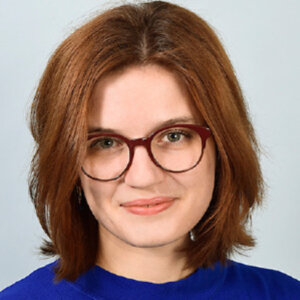 Eliška Greplová
Eliška Greplová
Technische Universiteit Delft, Netherlands
1. Discovering physics without neural networks
2. Learning phases of matter with neural networks
3. Learning physics of large scale quantum devices
[abstracts and lecture notes] [lecture recording #1][lecture recording #2][lecture recording #3] [notebooks]
Eliška Greplová is an assistant professor at the Department of Quantum Nanoscience at the Delft University of Technology. Her newly established “Quantum Matter and AI” group works at the intersection of quantum technologies, artificial intelligence, and condensed matter physics. She is also a member of the World Economic Forum Global Future Council on Quantum Computing. She is a part of the Virtual Science Forum organizing committee, a platform for scientific events going fully digital. Earlier, she was a postdoctoral researcher at ETH Zurich in the group of Sebastian Huber. She obtained her Ph.D. under the supervision of Klaus Mølmer at Aarhus University and worked in the group of Ignacio Cirac (Max Planck Institute of Quantum Optics) during the master’s studies. [source]
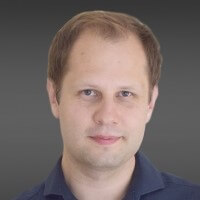 Roman Krems
Roman Krems
University of British Columbia, Vancouver, Canada
1. Reproducing Kernel Hilbert Spaces and Kernel Methods of Machine Learning
2. Inverse Problems in Quantum Dynamics by means of Bayesian Optimization
3. Extrapolation in Hamiltonian Spaces with Gaussian Processes
[lecture notes] [lecture recording #1][lecture recording #2][lecture recording #3] [notebooks]
Roman Krems is a professor and Distinguished University Scholar at the University of British Columbia. His group works at the intersection of quantum physics, machine learning, and chemistry on problems of relevance to quantum dynamics of complex systems, quantum sensing, and quantum algorithms. He did his Ph.D. at Goteborg University in Sweden and Harvard-Smithsonian Center for Astrophysics. He was then a Postdoctoral Fellow at the Harvard-MIT Center for Ultracold Atoms. He is the recipient of the Keith Laidler Award from the Canadian Society of Chemistry (2013), a Member of the College of the Royal Society of Canada (2015), and a Fellow of the American Physical Society (2015). [source]
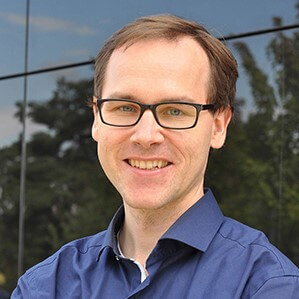 Florian Marquardt
Florian Marquardt
Max Planck Institute for the Science of Light, Erlangen
1. Basics of reinforcement learning
2. Deep reinforcement learning
3. Applications of reinforcement learning in quantum physic
[lecture notes] [lecture recording #1][lecture recording #2][lecture recording #3] [notebooks]
Florian Marquardt is a theoretical physicist working at the intersection between nanophysics and quantum optics. The Marquardt group’s current interests include cavity optomechanics and nanomechanics, quantum information processing, quantum many-body physics, and machine learning for physics. Since August 2016, he is a director at the Max Planck Institute for the Science of Light in Erlangen. He obtained his Ph.D. at the University of Basel, Switzerland, in the group of Christoph Bruder and was a Postdoctoral Fellow in the Swiss National Center for Competence in Research in Nanoscale Science (NCCR), Basel, and at the Yale University, USA (a group of Steve Girvin). He was awarded Emmy-Noether group leader fellowship of the German Science Foundation (DFG), Walter Schottky prize 2009, and the ERC Starting Grant of the European Research Council. [source]
Invited speakers:
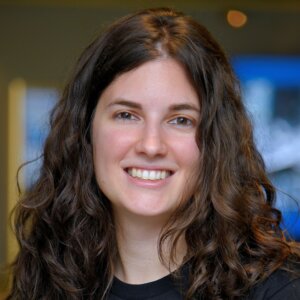 Alba Cervera-Lierta (University of Toronto) – Noisy Intermediate-Scale Quantum algorithms
Alba Cervera-Lierta (University of Toronto) – Noisy Intermediate-Scale Quantum algorithms
[abstract] [slides] [recording]
She is a Postdoctoral fellow at the University of Toronto (Matterlab group) and has a Ph.D. in quantum computation and quantum information. She’s currently working on quantum algorithms for noisy intermediate-scale quantum computation. Her background includes Bell Inequalities, multipartite entanglement, and entanglement in fundamental interactions. Besides fundamental physics, she has a great interest in quantum technologies, education, and public outreach activities. She’s involved in mentorship programs, outreach activities and was awarded the Teach Me QISKit award by IBMQ. [source]
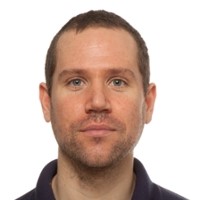 Vedran Dunjko (Universiteit Leiden) – Quantum-enhanced Reinforcement Learning (with practical part covered by Sofiene Jerbi)
Vedran Dunjko (Universiteit Leiden) – Quantum-enhanced Reinforcement Learning (with practical part covered by Sofiene Jerbi)
[abstract] [slides] [recording]
He is an Assistant Professor (tenure track) at the Leiden Institute of Advanced Computer Science, Leiden University, and a LIACS theory group member. He is also affiliated with the Quantum Software Consortium and is a co-founder of the Applied Quantum Algorithms – Leiden interdepartmental initiative. His interests lie in a broad spectrum of quantum computing topics. For the last few years, he has been fascinated with the intersection of quantum computing, machine learning, and artificial intelligence, especially quantum-enhanced machine learning, quantum-applied machine learning, and quantum heuristics. [source]
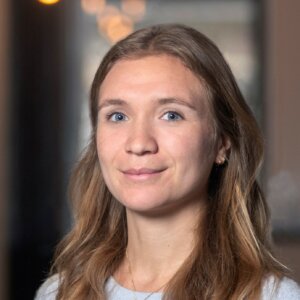 Marylou Gabrié (New York University & Flatiron Institute, New York) – Statistical mechanics of learning: the physicist’s view on learning theory
Marylou Gabrié (New York University & Flatiron Institute, New York) – Statistical mechanics of learning: the physicist’s view on learning theory
[slides] [recording]
She is a Postdoc jointly at NYU (Center for Data Science) and Flatiron Institute (CCM). Her research lies at the boundary of machine learning and statistical physics. Her objective is to improve the theoretical understanding of machine learning successes with approaches ranging from the statistical physics treatment of disordered systems to information theory. She is also interested in adapting machine learning technics for scientific use, particularly in the context of scarce data. She was awarded Fellowship L’Oréal-UNESCO for Women in Science. [source]
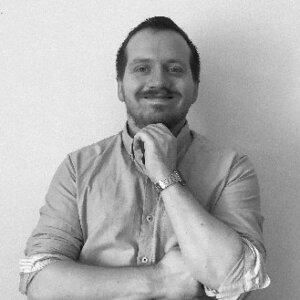 Patrick Huembeli (École Polytechnique Fédérale de Lausanne) – Interpretability in (quantum) machine learning with the Hessian
Patrick Huembeli (École Polytechnique Fédérale de Lausanne) – Interpretability in (quantum) machine learning with the Hessian
[slides] [recording]
He is a Postdoctoral Researcher at EPFL (Switzerland) in the Computational Quantum Science Laboratory of Giuseppe Carleo. He did his Ph.D. in the Quantum Information Theory group of Prof. Antonio Acín at ICFO in Spain. His main research interests lie in the application of machine learning to quantum physics and the use of quantum computing devices to enhance the performance of machine learning algorithms. [source]
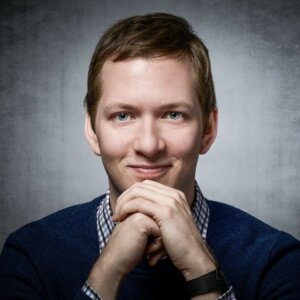 Evert van Nieuwenburg (Niels Bohr International Academy) – Reinforcement learning and evolutionary strategies for quantum error correction
Evert van Nieuwenburg (Niels Bohr International Academy) – Reinforcement learning and evolutionary strategies for quantum error correction
[abstract] [slides] [recording]
He is a Professor in condensed matter physics at the Niels Bohr International Academy. His research focuses on using modern machine learning and artificial intelligence techniques to advance the state-of-the-art in numerical and experimental condensed matter physics. [source]
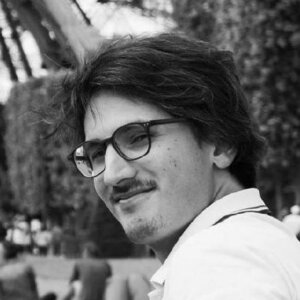 Filippo Vicentini (École Polytechnique Fédérale de Lausanne) – Introduction to NetKet
Filippo Vicentini (École Polytechnique Fédérale de Lausanne) – Introduction to NetKet
[slides] [recording]
He is a Postdoctoral Researcher in the Computational Quantum Science Laboratory of Giuseppe Carleo at EPFL and was a Research Scholar in the Simons Foundation in New York. He has a background in quantum optics and the study of noisy dissipative systems. More recently, he developed a software stack to simulate quantum systems on classical computers with neural networks. He also researches variational quantum algorithms. He collaborates on several open-source projects connected to quantum physics. [source]
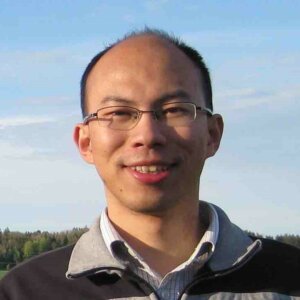 Lei Wang (Chinese Academy of Sciences, Beijing) – Two lessons from deep learning
Lei Wang (Chinese Academy of Sciences, Beijing) – Two lessons from deep learning
[abstract] [slides] [recording]
He is a Professor at the Institute of Physics of the Chinese Academy of Sciences in Beijing and was a Postdoc at the ETH at Matthias Troyer’s group. His main interests are deep learning and its application in scientific discoveries, quantum algorithms and programming techniques, and the design of new efficient algorithms for the strongly correlated quantum matter. [source]
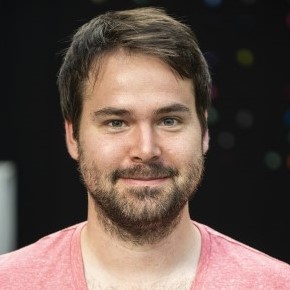
Sebastian Wetzel (Perimeter Institute, Waterloo) – Interpreting neural networks in the field of theoretical physics
[slides] [recording]
He is a Joint Postdoctoral Researcher at the Perimeter Institute and the National Research Council of Canada (NRC). His interest lies at the intersection between machine learning and theoretical physics. His main research focus is the development of new AI-based methods to study problems in statistical physics, condensed matter, and high-energy physics. [source: 1 and 2]
